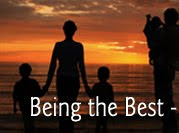Kids struggle in high school for a lot of reasons — drugs, lack of interest, trouble at home, to name a few. But a new study in the July issue of Sociology of Education highlights a factor that doesn't
immediately come to mind: obesity. Using college enrollment as a measure of academic success, University of Texas at Austin sociologist Robert Crosnoe found that obese students had a worse experience at school than their thinner peers and were less likely to attend college, and that the effects of being overweight hurt girls far more than boys. Obese girls were only half as likely as non-obese girls to go to college after high school, and were even less likely to enter college if they went to a high school where few other students were overweight, says Crosnoe. But obese girls who went to high school with a sizable overweight population — where heavy girls represented about 20% of the student body — had normal odds of attending college. "The more it makes you stand out from the crowd, the worse it is," says Crosnoe. Alternatively, obese boys were immune to what Crosnoe terms the "college effect" and were just as likely as normal-weight students to go to college. Crosnoe thinks the difference has to do with the fact that body and appearance are more central to girls' self-concept than to boys', and that the negative social effects of obesity have a more powerful impact on girls' lives, including their academic careers.
Recent research has shown that overweight youngsters are often teased, ostracized and isolated by their peers, and are sometimes treated differently by teachers and even parents. According to Crosnoe, children often internalize this negative social feedback — whether real or perceived — which can lead to alcohol and drug use, failure in school, truancy and suicidal thoughts. "They are just unhappy at school," he says, "and it does things to them in the present that have long-term consequences."
For his study, Crosnoe used data collected on nearly 11,000 adolescents from 128 schools as part of the ongoing National Longitudinal Study of Adolescent Health, the largest and most comprehensive survey of health-related behavior among adolescents between 7th and 12th grade, which started in 1994. Crosnoe's study focused specifically on how obesity predicts maladjustment, and how maladjustment predicts college enrollment. For example, he found that self-rejection in obese girls was 63% higher than for nonobese girls. And in one group of obese girls, the rate of class failure was 24% higher than with their non-obese counterparts. The obesity effect on college enrollment was also slightly stronger for blacks and Hispanics than it was for whites but the results were rooted less in race than in psychosocial adjustment. "Race is a predictor of college enrollment, obesity and depression, but it doesn't seem to be a strong factor in how obesity predicts socio-emotional adjustment and how that predicts college enrollment," says Crosnoe. "It's really just a more general phenomenon across these racial groups."
Previous studies have shown that rather than becoming emotionally distressed and disengaging from school, a minority of obese adolescents excel in academics. "Knowing that they'll never be captain of the football or swim team, they try harder and get really good grades," says Crosnoe.
"The more it makes you stand out from the crowd, the worse it is," says Crosnoe. Alternatively, obese boys were immune to what Crosnoe terms the "college effect" and were just as likely as normal-weight students to go to college. Crosnoe thinks the difference has to do with the fact that body and appearance are more central to girls' self-concept than to boys', and that the negative social effects of obesity have a more powerful impact on girls' lives, including their academic careers.
Recent research has shown that overweight youngsters are often teased, ostracized and isolated by their peers, and are sometimes treated differently by teachers and even parents.
According to Crosnoe, children often internalize this negative social feedback — whether real or perceived — which can lead to alcohol and drug use, failure in school, truancy and suicidal thoughts. "They are just unhappy at school," he says, "and it does things to them in the present that have long-term
consequences." For his study, Crosnoe used data collected on nearly 11,000 adolescents from 128 schools as part of the ongoing National Longitudinal Study of Adolescent Health, the largest and most comprehensive survey of health-related behavior among adolescents between 7th and 12th grade, which started in 1994. Crosnoe's study focused specifically on how obesity predicts maladjustment, and how maladjustment predicts college enrollment. For example, he found that self-rejection in obese girls was 63% higher than for nonobese girls. And in one group of obese girls, the rate of class failure was 24% higher than with their non-obese counterparts. The obesity effect on college enrollment was also slightly stronger for blacks and Hispanics than it was for whites but the results were rooted less in race than in
psychosocial adjustment. "Race is a predictor of college enrollment, obesity and depression, but it doesn't seem to be a strong factor in how obesity predicts socio-emotional adjustment and how that predicts college enrollment," says Crosnoe. "It's really just a more general phenomenon cross these racial groups."
Previous studies have shown that rather than becoming emotionally distressed and disengaging from school, a minority of obese adolescents excel in academics. "Knowing that they'll never be captain of the football or swim team, they try harder and get really good grades," says Crosnoe.
Tuesday, April 27, 2010
Subscribe to:
Post Comments (Atom)
About Me

- Soraya
- Miami, FL, United States
- I have a lot to say.... strong opinions and deep understanding for truth... may justice always prevail!














































No comments:
Post a Comment